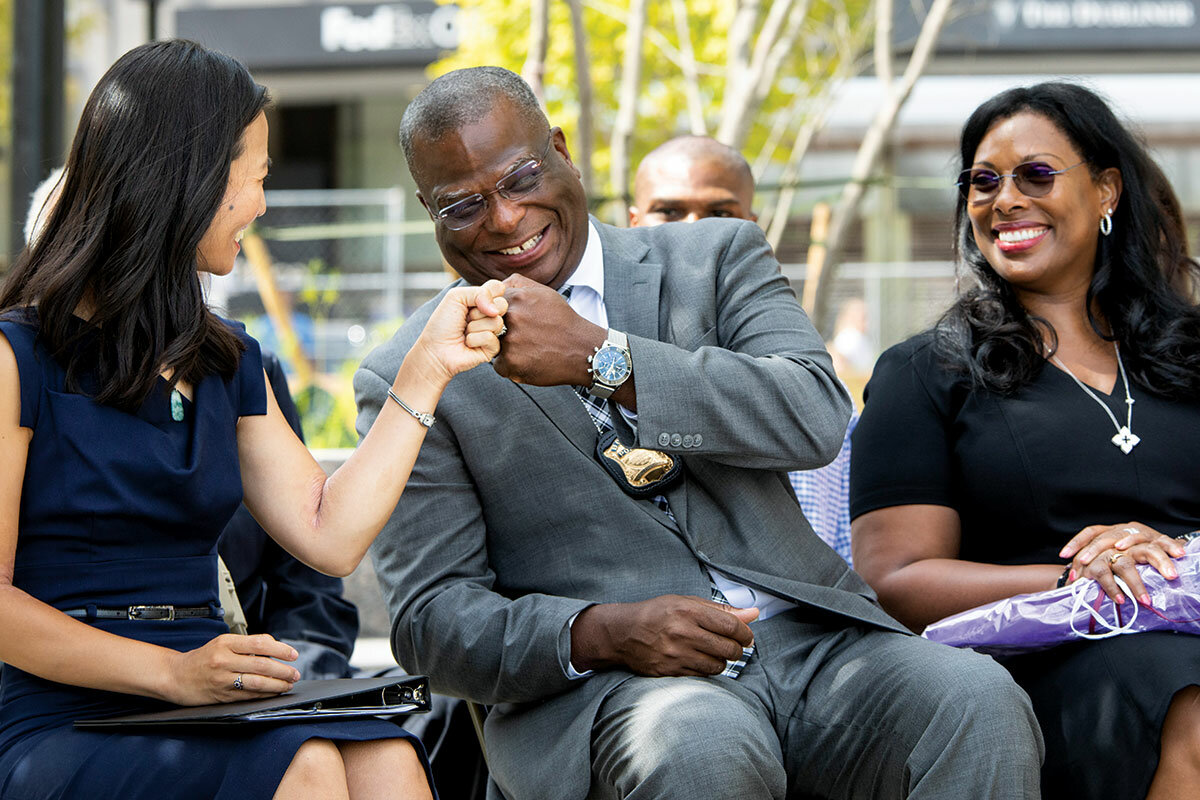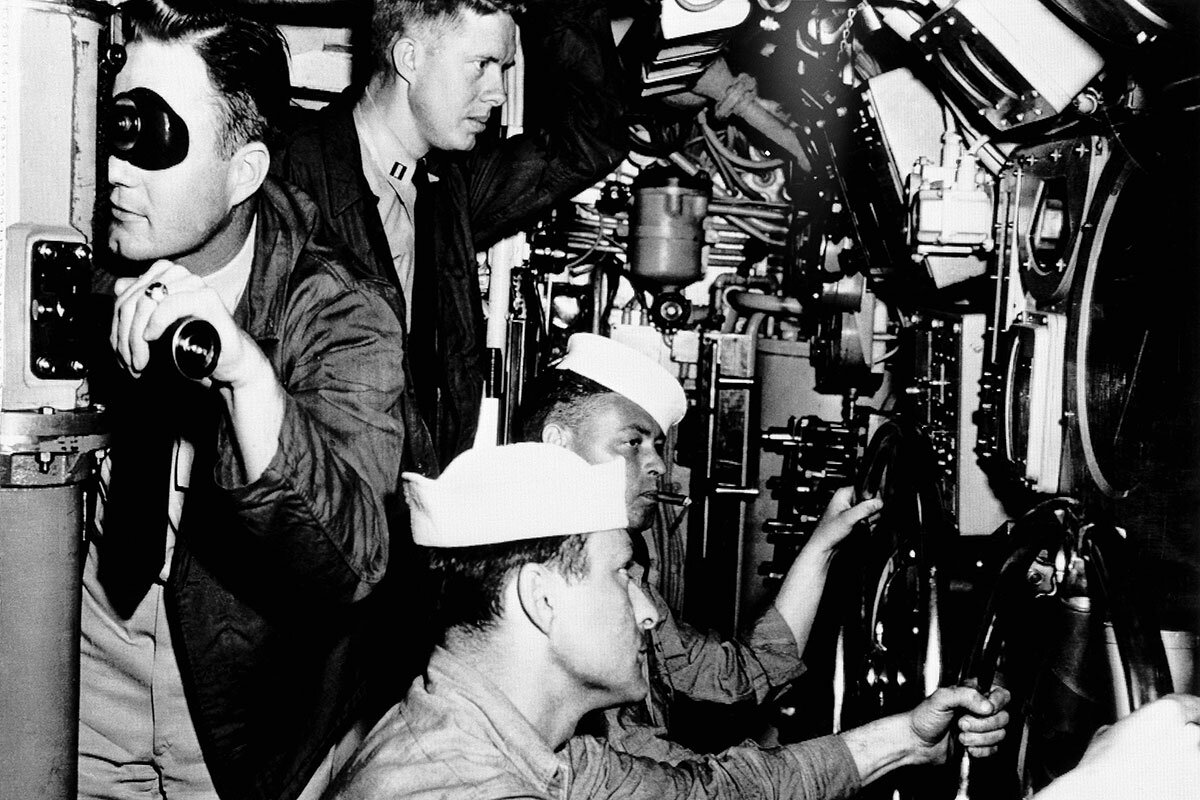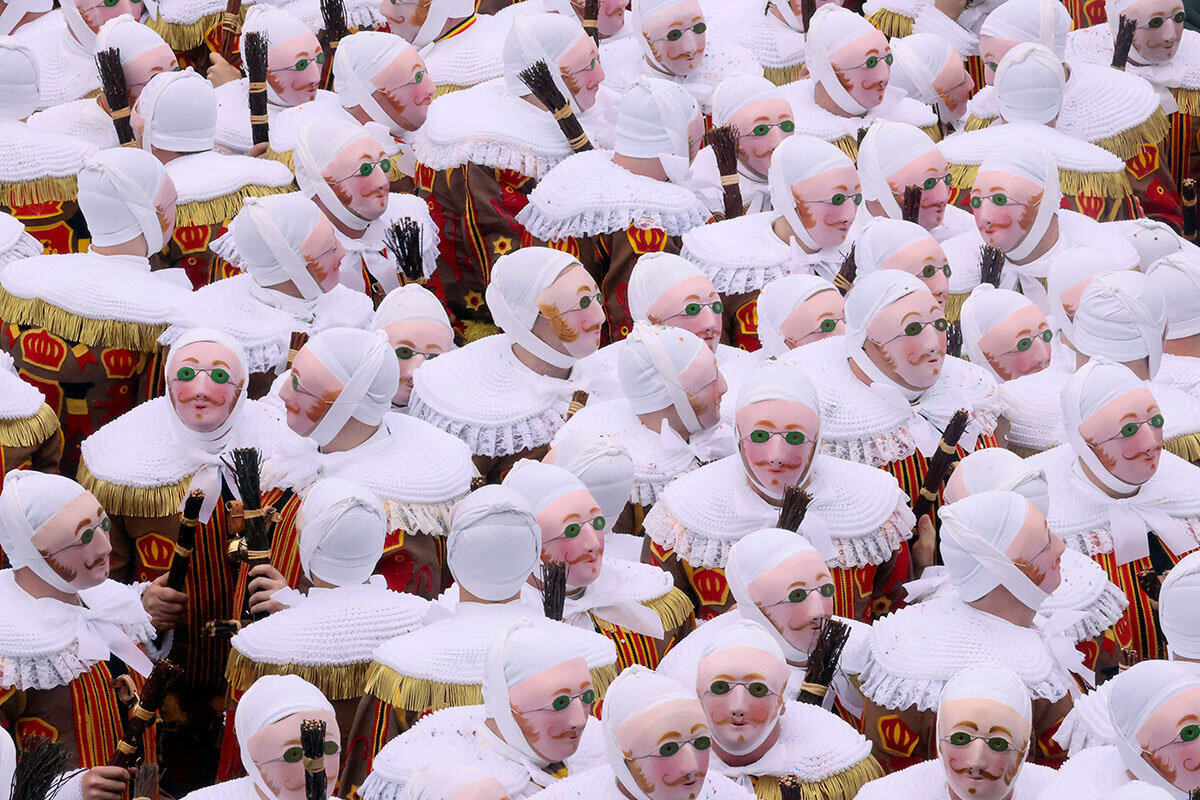As NATO and the European Union hammer out a consensus approach to helping Ukraine resist the Russian invasion, new paths to cooperation and leadership are evolving between Western and Eastern European allies.
Monitor Daily Podcast
- Follow us:
- Apple Podcasts
- Spotify
- RSS Feed
- Download
 Mark Sappenfield
Mark Sappenfield
How do I think about identity? How do I create change? How should I respond when faced with prejudice and hate?
In America’s reckoning on police violence and race, these are three fundamental questions. In today’s story by Kalpana Jain, we glimpse how one man answers them. Michael Cox is commissioner of the Boston Police Department. In 1995, as a plainclothes officer for the same department, he was mistaken by fellow officers for a gang member and beaten brutally.
Mr. Cox would later say that he didn’t think of himself as a Black officer at first. “He was the young man from a middle-class black family who believed character and hard work meant more than race,” wrote the author of a book about the beating. “In many ways he was color-blind.”
But Mr. Cox was beaten because he was Black. He could let it go, or he could fight for change. He filed a lawsuit. He was called a “troublemaker” and threatened. But everything he has done, he said at his swearing-in as commissioner, has been to change policing.
Ask those around Mr. Cox to describe him, and many find the same words: “soft-spoken” and “tenderhearted,” someone who carries himself with “dignity,” and “a gentleman all the time.”
The triumph of now running the department he once sued does not guarantee success. Yet the triumph is still profound. Mr. Cox entered the job he loved wishing only to be seen as a human – an agent of good. That desire evolved; it hardened; it fought. But it never yielded. Whatever lies ahead is a legacy for all to serve and protect.











